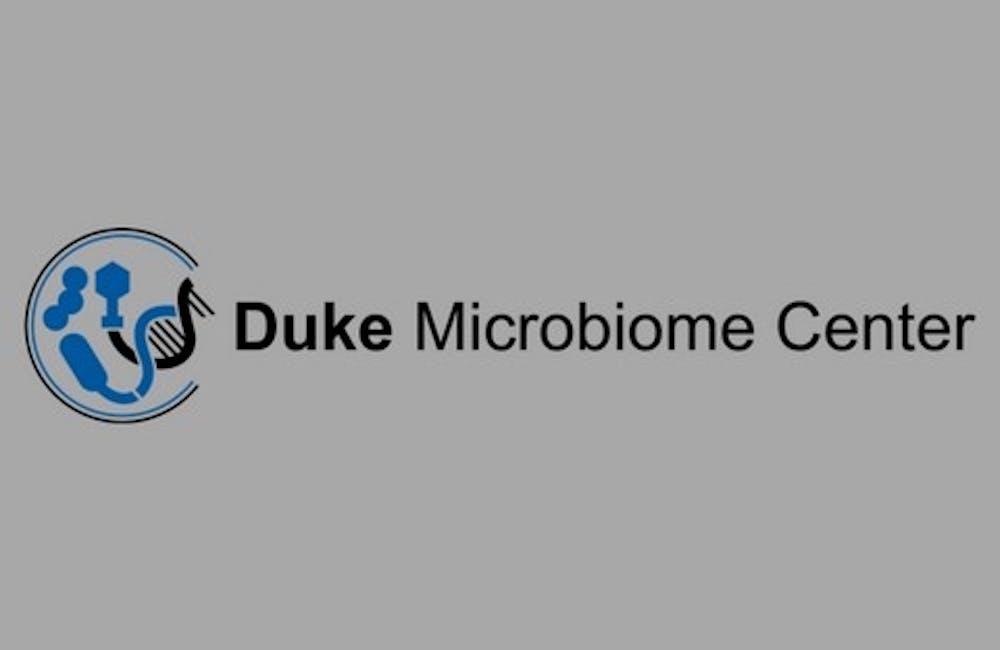Microbial enthusiasts rejoice: the new Duke Microbiome Center has officially launched.
The center expands on the mission and objectives of the previous Duke Center for the Genomics of Microbial Systems by integrating new technologies and resources that a larger group of researchers can take advantage of. Its foundation was fueled by the “rapidly expanding interest among the public and scientific community in the pervasive roles of microbial communities in human health, the environment, and biotechnology,” according to the center’s official website.
John Rawls, director of the Duke Microbiome Center and an associate professor of molecular genetics and microbiology, said that the launch of the new center reflects the recent boom in popularity of microbial studies, particularly at Duke.
“Over the last five years, we have witnessed remarkable growth in the scientific community at Duke University interested in studying microbiomes," Rawls said. "As this scientific community has grown, their needs have also grown and diversified. The Duke Microbiome Center was commissioned in order to meet the needs of that community now and in the future.”
Rawls also commented on the differences between the Duke Microbiome Center and the previous Duke Center for the Genomics of Microbial Systems. He noted that that previous center—which was commissioned in 2012—was more limited in its focus and resources.
“[The Center for the Genomics of Microbial Systems] had three focus areas—microbial evolution, experimental microbial genomics, and microbiome science," Rawls said. "GeMS faculty membership has nearly tripled since 2012, with most of that growth occurring in the microbiome sciences. The Duke Microbiome Center will continue GeMS’ mission but expands it significantly to support new microbiome-related resources, initiatives, and programs across the Duke campus.”
Microbiomes affect much of the human body and the environment, which makes studying them important to the scientific community at large, he explained. He added that research over the last several decades has revolutionized our understanding of the diversity of microbial life that exists in the human body and the environment.
"It has become clear that alterations in microbial communities contribute to a wide range of human diseases, including cancer, inflammatory bowel disease, obesity, cardiovascular disease, and neurological disorders," he said. "There is therefore a growing imperative that we understand how these microbial communities are assembled, how they make these diverse contributions to human and environmental health, and how we might engineer microbiomes to promote health.”
In an email, Lawrence David, associate director of the new center and assistant professor of molecular genetics and microbiology, shared some of the important milestones made by the prior GeMS center.
“The old center facilitated several major new initiatives on campus, including an NSF Research Traineeship called 'Integrative Bioinformatics for Investigating and Engineering Microbiomes; a new NIH-supported project to understand how the microbiome and microbiome-derived metabolites contribute to pediatric obesity and intervention outcome; and a new American Heart Association project that also investigates the role of the microbiome in pediatric obesity,” he wrote.
Regardless of these impressive accomplishments, David noted that he hopes that the new center will help answer some questions that the previous center was unable to address.
“The DMC will define success by ensuring that Duke investigators have access to the essential methods and resources to conduct high-impact and reproducible microbiome research, and allowing Duke to work towards international prominence in the microbiome sciences,” he said.
Rawls shared his own excitement for the launch of the center, adding that he hopes it will foster further collaboration and discovery amongst those interested in microbiome sciences.
“We look forward to working with partners across Duke University to grow and sustain the microbiome sciences, and we invite interested faculty, students, trainees, and staff to contact us if they want to get involved," he said.
Get The Chronicle straight to your inbox
Sign up for our weekly newsletter. Cancel at any time.

